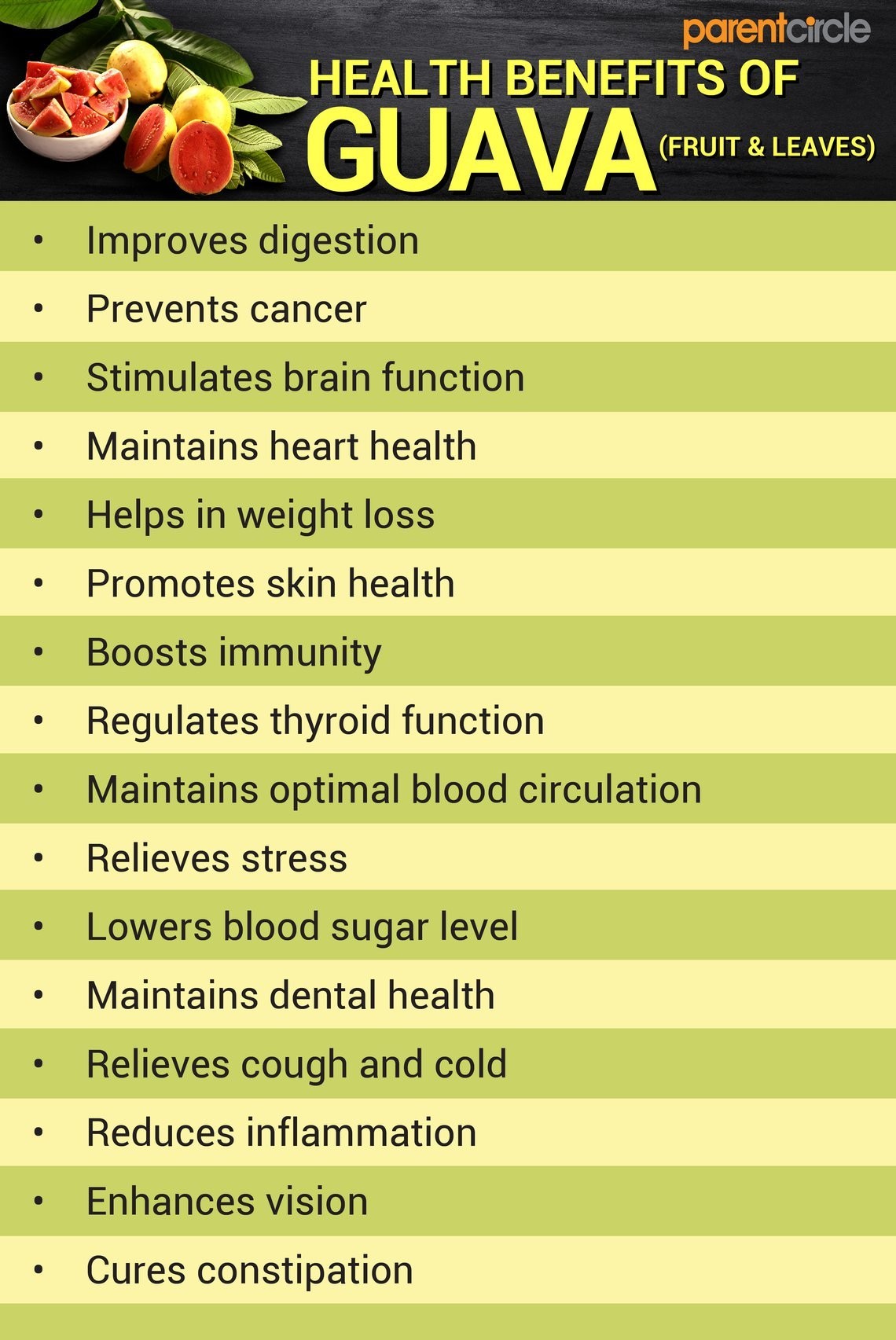
Contents
Health Benefits and Disadvantages of Eating Guava
Guava, a popular tropical tree, offers numerous health benefits. It controls blood sugar levels, reduces cancer risk, but may cause constipation and allergies.
Guava, a tropical tree with tasty and nutritious fruit, is low in fats but high in fiber, vitamins, and antioxidants. Most notably, it helps lower blood sugar levels and has been used in traditional medicine for diabetes. Additionally, guavas pose no major risks, making them a safe and healthy dietary choice.
Guava is a small tropical tree native to Mexico and Central America, and it grows in most tropical and subtropical countries worldwide.
While there are many varieties of guavas, the most commonly grown and consumed is the "common guava," scientifically known as Psidium guajava and belonging to the myrtle family.
Guava goes by different names in various countries, such as Guayaba (Spanish), Goeajaaba (Dutch), Gouyave (French), Goiaba (Portuguese), Farang (Thai), and Amarood (Indian).
Guava fruits can be round or oval-shaped, with skin colors ranging from red and yellow to light green. Both the inner pulp and seeds are edible.
The taste of guava pulp can vary, from sweet and juicy to sour and tart. It is commonly eaten raw but can also be used to make jams, beverages, and pastes.
Various parts of the guava plant, including leaves, seeds, and fruit pulp, can be used for medicinal purposes. Guava leaf extracts are available as supplements and can be steeped in boiling water to make tea.
What Nutrients Are Found in Guavas?
Guavas are highly nutritious, with 100 grams of raw guava fruit containing:
- 68 calories
- 0.95 g fat
- 2.55 g protein
- 8.92 g sugars
- 14.3 g carbohydrates
- 5.4 g total dietary fiber
Guavas are an excellent source of vitamins, antioxidants, and dietary fiber. They are particularly rich in vitamin C, containing five times more than oranges. Other vitamins, including A, B9 (folate), and K, are also present.
Guavas are high in potassium and magnesium, and other minerals like phosphorus, zinc, iron, and calcium are present in smaller amounts.
Guavas are considered a major source of antioxidants, with polyphenols, carotenoids, flavonoids, and ascorbic acid playing a role in their antioxidant properties.
What Are the Health Benefits of Guavas?
Due to their vitamins, antioxidants, and dietary fiber, guavas offer various health benefits:
Control Blood Sugar Levels: Guavas are known for their positive impact on blood sugar levels, making them beneficial for diabetes management. They contain chemicals that regulate glucose absorption.
Relieve Menstrual Pain: Guava leaf extract is effective in reducing the intensity of menstrual cramps and uterine cramps.
Help with Digestive Disorders: Guavas, with their high fiber content, help soften stool and improve bowel movements. Guava seeds act as laxatives and assist in relieving constipation. Guava leaf extracts are also effective in treating infectious diarrhea.
May Reduce Cancer Risk: While further studies are needed, guava leaf extracts have shown potential in treating cancer. They contain chemicals that inhibit tumor cell multiplication and possess antioxidant properties.
Boost the Immune System: Guavas, rich in vitamin C, enhance immunity. Guava leaves have antibacterial, antifungal, and antiviral properties that can help prevent infections.
Reduce the Risk of Heart Disease: Guava leaves and fruit protect heart cells, regulate blood pressure, and improve cholesterol levels, decreasing the risk of heart disorders.
QUESTION
What Are the Side Effects of Guava?
While moderate consumption of guavas and their products carries no serious side effects, excessive intake can lead to constipation and, in rare cases, allergies. Additionally, chemicals used to store guavas may pose health risks if not washed properly.
Who Should Avoid Guavas?
Although guavas are generally safe for most healthy adults, specific groups of individuals should exercise caution or avoid guavas and guava products:
Pregnant and Breastfeeding Women: Pregnant and breastfeeding women should consult their doctors before consuming guava leaf extract supplements, as they are not FDA-approved.
People with Skin Conditions: Guava fruit and leaf may irritate the skin, particularly in individuals with pre-existing skin conditions like eczema.
Pre-diabetic or Diabetic Patients: Guava leaf extracts can lower blood sugar levels, so those with pre-diabetes or diabetes should be cautious, as it may cause hypoglycemia.
References:
– The American Journal of Cardiology: "Effects of guava intake on serum total and high-density lipoprotein cholesterol levels and on systemic blood pressure."
– Current Medicinal Chemistry: "In vitro, in vivo and in silico analysis of the anticancer and estrogen-like activity of guava leaf extracts."
– Defeat Diabetes Foundation: "Guava."
– Développement durable: "A review of Guava (Psidium guajava)."
– International Journal of Biological Macromolecules: "Protective effects of polysaccharides from Psidium guajava leaves against oxidative stresses."
– International Journal of Molecular Sciences: "Health Effects of Psidium guajava L. Leaves: An Overview of the Last Decade."
– ISRN Hepatology: "Protective Effects of Guava Pulp on Cholestatic Liver Injury."
– Journal of Agricultural and Food Chemistry: "Guava fruit (Psidium guajava L.) as a new source of antioxidant dietary fiber."
– Journal of Ethnopharmacology: "Antidiabetic effects of extracts from Psidium guajava," "Effect of a Psidii guajavae folium extract in the treatment of primary dysmenorrhea: a randomized clinical trial," "Psidium guajava: a review of its traditional uses, phytochemistry, and pharmacology."
– Nutrition & Metabolism: "Anti-hyperglycemic and anti-hyperlipidemic effects of guava leaf extract."
– Pharmacognosy Magazine: "Phytochemical investigation and antimicrobial activity of Psidium guajava L. leaves."
– Red Tent Health Centre: "THE ECZEMA DIET."
– Toxicology Research: "A short review on a Nutritional Fruit: Guava."
– U.S. Department of Agriculture FoodData Central: "Guavas, common, raw."


